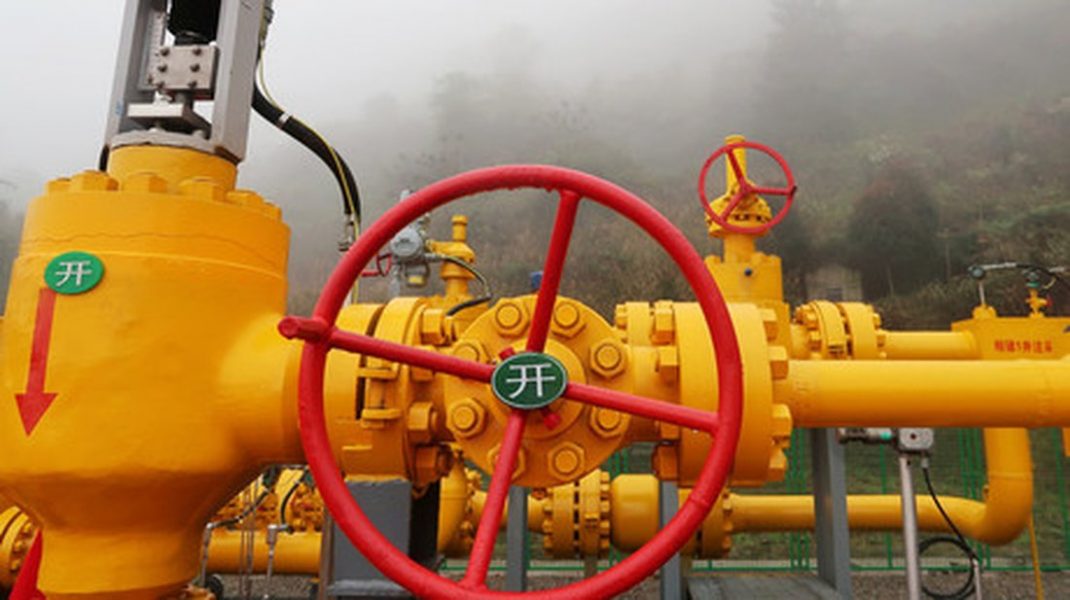Hala Bugaighis and Mazigh Buzakhar


In the aftermath of the Arab Spring, Libya witnessed a period of instability and political polarization. The rise of uncontrolled armed militias challenging the central government forced several international oil companies to leave the country in 2011, while production volumes fell to a 30-year low in 2013 reaching 1 million oil barrels a day.
In the following years, a group of radical jihadists took control over significant parts of the country mainly in the coastal city of Sirte, further deepening instability and preventing new investments.
Libya has the largest natural gas resources in Africa and the tenth largest globally, with proven reserves of 53 trillion cubic feet (Tcf). Most of the natural gas is consumed for power generation, with the rest used as feedstock for fertilizer and oil refining industries. In 2018, natural gas supplied around 80% of the country’s power generation and was planned to be used to fill the gap between falling oil production and rising demand in the future.
Since 2004, natural gas has also been exported to neighbouring countries through the Greenstream Pipeline project owned by ENI and NOC. Still, Libya’s oil production is declining despite efforts by the National Oil Corporation (NOC) to maintain production levels and prevent further decline. Production levels continued to fall below 1.2 million barrels per day between 2014 and 2022 with the expectation of continuous declining further years ahead with current energy uncertainty and the challenges of climate change and energy shortages.
The increasing instability led to the withdrawal of many international oil companies from Libya, reducing production volumes and increasing the costs of exploration in the country. In addition, it became a norm to interrupt oil production to get the attention of the central government in Tripoli. Recently, as a result of the several protests in the south against the dire livelihood situation in the oil-rich region, production from the oil fields was suspended several times, and deprived the country of 330,000 BPD in addition to the significant damage to the oil facilities.
These events affected the country’s fiscal situation, since oil and gas account for the largest share of the country’s revenue. Government revenue was at its lowest in 2016, receiving only $8.85 billion from hydrocarbon revenue compared with previous years, and nearly drove the country to the edge of bankruptcy, with its foreign currency reserves almost depleted. But it had a deep effect on the oil infrastructure in the country, which created more challenges.
On another front, the NOC struggled to develop the sector and maintain the working conditions despite the issues with insufficient budgets allocated to operational and capital expenses and their inability to meet the demands of the field workers and their obligations to other companies.
In July 2022, the Government of National Unity appointed new leadership to the NOC, which managed to resume oil production and exports at all blockaded oilfields and ports but still facing a challenge to achieve their promise to double the current production to reach 3 million barrels per day.
Despite these challenges, Libya is well-positioned for an energy transition: it is one of very few oil producing countries that also have large reserves of natural gas and renewable energy resources. This offers unique opportunities for an accelerated energy transition if stability could be restored, and political tensions managed.
Unpacking the Socio-Economic Context of an Energy Transition
Transitioning away from oil and towards more renewable sources will not come without obstacles. Despite the problems with production, the country still relies on oil and gas exports as a mainstay for economic prosperity. To put this into perspective, the increased oil prices in 2021 resulted in a 123.2% improvement in GDP – a quite staggering figure. This demonstrates that oil exports have a disproportionate impact on the overall health of the Libyan economy, and that the current economy is very fragile, as it would have to be to record those sorts of growth numbers.
From a socio-economic perspective, the oil and gas industry is also one of the largest employers. According to the World Bank, the sector currently employs approximately 25% of all workers in the country, therefore any transition attempts should have the ability to absorb those jobs and to create more in the future. It is important to mention that the lack of skilled Labour that is required to make the shift remains one of the main challenges. As petrochemicals have dominated the energy scene, so has the training and education around these particular industries.
Making the shift to a new source of energy requires a new set of skills and ways of thinking that would need to be bedded into society from the ground up. This will require time and resources to be accomplished. However, empowering the people to be a part of the transition, rather than be victims of it, would put the country on a better long-term path.
Regardless of the challenges, this seems like a key inflection point for the country. If Libya is to make itself resilient to the changing tides in the energy industry, now is the time to make the difficult decisions and jump on this opportunity – one that very few countries actually have. If Libya can do this, it could transform the local landscape and be a force for change in improving the quality of lives for ordinary Libyans.
***
Hala, T, Bugaighis is a senior Libyan consultant, researcher, and co-founder of Jusoor Center for Studies and Development. This pioneer Libyan think tank works on economic development and advocates for women’s economic inclusion. She has had several reports and articles on women and Libya’s economic development published. She is also a member of the Libyan Economic Track coordinated by UNSMIL.
Mazigh Buzakhar is an independent researcher and co-founder of TIRA for Research and Studies based in Tripoli-Libya with 17 years of experience in the telecom and oilfield industry. He holds BSc. degree in Electrical & Electronic Engineering from Sirte University, Libya and MIT Executive Certification in Strategy & Innovation. He has had several works published in journals and on websites including articles and research papers on Tamazight culture & language, the digital economy and energy.
_______________





